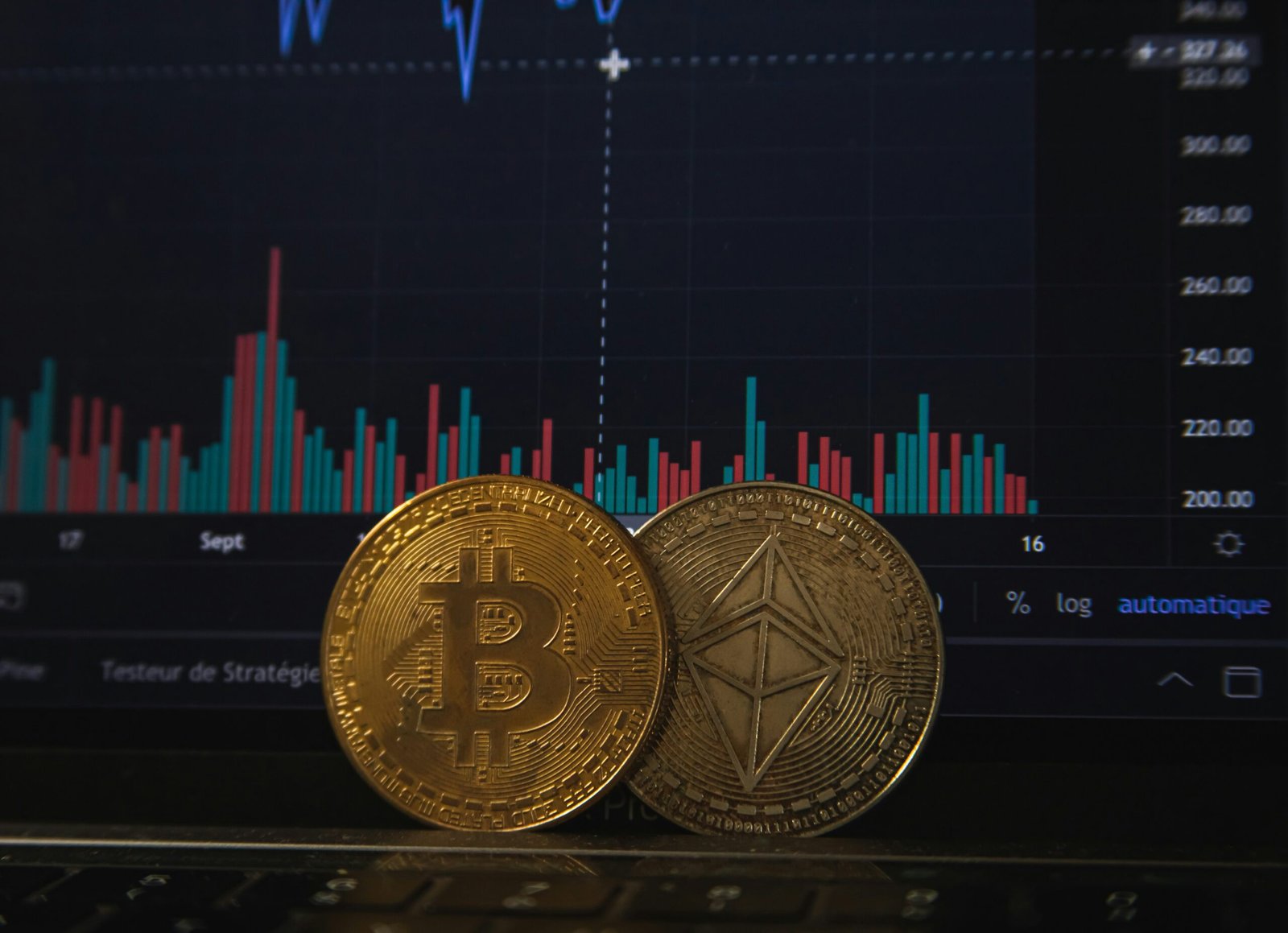Introduction to the Token Economy
The token economy has emerged as a pivotal concept in contemporary discourse, straddling the realms of both science and philosophy. At its core, the token economy refers to the systematic implementation of tokens—digital or otherwise—as units of value exchange in various ecosystems. These tokens serve as instruments that facilitate transactions, thereby creating an underlying structure that can transform how commerce, governance, and social interactions are conducted in the digital arena.
In recent years, the token economy has gained substantial traction, especially with the advent of technologies such as blockchain. This technology empowers decentralized networks, allowing for the creation and distribution of tokens that are not only representative of value but also encapsulate specific functionalities within their ecosystems. Consequently, the importance of the token economy becomes evident as it intertwines with numerous aspects of daily life, ranging from financial transactions to social engagements, thus augmenting the traditional economic frameworks we have known.
Moreover, the token economy prompts philosophical inquiries into the nature of value, trust, and human interaction in the digital age. It challenges prevailing ideologies about ownership, decentralization, and the roles of intermediaries in economic exchanges. As society increasingly relies on digital enhancements, understanding the intricacies of the token economy becomes essential for injecting clarity into these evolving discussions. This examination not only stimulates intellectual curiosity but also encourages a proactive engagement with the technology that is reshaping our reality.
Thus, the token economy is not merely a subject of financial interest; it is a multidisciplinary field inviting exploration and critical thinking. The significance of this concept in our digital landscape extends beyond its immediate implications, urging individuals and groups to reassess established viewpoints and embrace new possibilities within this innovative framework.
The Genesis of the Token Economy
The concept of the token economy can be traced back through centuries of philosophical thought and economic development. Early societies engaged in various forms of tokenization, with simple objects like shells, beads, or stones used as a means to facilitate trade. These tokens represented agreed-upon values, serving as a foundational mechanism for value exchange before the advent of formal currency. Philosophers such as Aristotle pondered on value, arguing that it is inherently relational, determined by the societal consensus rather than an intrinsic property of the goods themselves. This philosophical grounding laid the groundwork for understanding value as something that could be represented symbolically.
One key milestone in the evolution of the token economy was the introduction of commodity money, where certain goods, such as gold or silver, became widely accepted as a medium of exchange. However, the shift from tangible goods to abstract tokens emerged significantly with the issuance of promissory notes in medieval Europe. These documents functioned as claims on future payments and allowed for more efficient trade practices, thus laying the groundwork for what we now recognize as a credit economy.
The technological advancements of the late 20th and early 21st centuries further transformed the token economy. The rise of digital technologies introduced concepts such as digital currencies and cryptocurrency, which operate on the principles of decentralization and blockchain technology. This evolution reflects a philosophical shift from reliance on centralized authorities to individual empowerment in economic transactions. Today, the token economy is expanding beyond financial realms, encompassing areas like governance, identity, and property rights, transforming the way value is perceived and exchanged in a globalized world. Understanding this historical context is critical as we explore the complex interactions between tokens, value systems, and societal norms.
Philosophical Foundations of the Token Economy
The token economy is not merely a technical construct, but also a philosophical endeavor that invites exploration from various critical angles. At its core lies a multitude of theories that inform our understanding of value, exchange, and the underlying human behavior that facilitates these processes. Philosophical inquiry helps us to scrutinize the mechanisms through which tokens function, promoting a deeper comprehension of their efficacy and implications within societal frameworks.
Central to this exploration is the concept of value, which has been theorized by philosophers from Aristotle to Marx. In the context of the token economy, value is not intrinsic to the tokens themselves, but is rather assigned based on collective human perception and social agreements. This aligns with the philosophical stance of social constructivism, which posits that reality, including economic value, is constructed through social interactions and shared beliefs. Thus, tokens serve as instruments of value exchange, acting as representations of agreed-upon worth within digital landscapes.
Moreover, the token economy can be analyzed through the lens of existentialism, which emphasizes individual agency and the possibility of choice. This perspective sheds light on how individuals engage with tokens in various forms, be it cryptocurrencies or loyalty points, highlighting the behaviors and decisions that arise as participants navigate this innovative economic structure. Tokens empower users, providing them with agency to determine their value propositions in a decentralized environment, ultimately reflecting the dynamic nature of human relationships.
In addition, philosophical discussions around ethics and fairness become vital while examining the token economy. Questions surrounding equitable access, distribution of wealth, and implications of tokenized systems provoke scrutiny of moral obligations. Overall, the philosophical foundations of the token economy not only enrich our understanding of its mechanics but also guide us in addressing the broader social implications that arise from this unique form of economic interaction.
Scientific Perspectives on Token Economies
The concept of token economies has gained substantial traction in recent years, drawing the attention of both economists and behavioral scientists. Token economies refer to systems where tokens are used as a medium of exchange, reward, or incentive that can lead to various behavioral and economic outcomes. From a scientific perspective, understanding token economies involves the exploration of theories that focus on economic behavior and decision-making processes.
One foundational theory relevant to the understanding of token economies is the principle of operant conditioning, which suggests that behaviors can be modified based on rewards or punishments. This framework implies that the use of tokens as rewards can reinforce desirable actions, thus influencing individuals’ behaviors within a given economy. The application of this principle is seen in various contexts, from education to behavioral therapy, where tokens serve as concrete incentives to promote specific behaviors.
Moreover, the concept of utility, prevalent in classical economic theories, provides another lens through which token economies can be examined. The utility theory posits that individuals make rational choices based on the perceived satisfaction or value derived from consuming goods or services. In a token economy, individuals evaluate the utility of obtaining tokens, determining their willingness to engage in activities that yield these tokens. This interplay between behavior and the perceived value of tokens highlights the importance of psychological factors in economic decision-making.
Behavioral economics further enriches this analysis by emphasizing the role of cognitive biases and emotions in economic choices. Research suggests that participants in token economies may demonstrate irrational behaviors due to overvaluation of tokens or underestimating the costs of their actions. These insights illustrate how scientific inquiries into human behavior are crucial for shaping effective frameworks within token economies, enabling better designs that promote rational decision-making and enhance overall system efficacy.
Real-World Applications of the Token Economy
The token economy has found numerous real-world applications that illustrate its significance in contemporary society. Central to these applications is the emergence of cryptocurrencies, which serve as decentralized digital currencies leveraging blockchain technology. Bitcoin, for instance, pioneered this space, translating the theoretical potential of tokenization into tangible value. Cryptocurrencies operate as both a medium of exchange and a store of value, enabling peer-to-peer transactions without the interference of traditional financial institutions. This dismantles geographical and economic barriers, facilitating global commerce.
Beyond cryptocurrencies, digital loyalty programs represent another practical manifestation of the token economy. Retailers and service providers employ these programs to incentivize customer engagement by offering tokens or points that can be redeemed for discounts or rewards. This not only cultivates customer loyalty but also allows businesses to collect valuable data on consumer preferences and behavior patterns. As a result, the token economy creates a mutually beneficial relationship between consumers and providers, enhancing overall market efficiency.
Another illustrative example is blockchain technology, which serves as the backbone of many token-based systems. Industries such as supply chain management leverage blockchain to enhance transparency and traceability. By creating an immutable record of transactions, stakeholders can track products from origin to consumer, ensuring authenticity and bolstering trust within the supply chain. This heightened transparency is particularly beneficial in sectors like food safety, where traceability can help eliminate counterfeit goods and ensure quality standards are maintained.
These examples collectively underscore the diversity and utility of the token economy in various sectors. As technology continues to evolve, the practical applications of tokenization will likely expand, influencing even more aspects of daily life and commerce.
Challenges and Criticisms of the Token Economy
The concept of the token economy has garnered significant attention; however, it is not without its challenges and criticisms. One primary concern revolves around the inherent sustainability of token systems. Critics argue that many token models are built on fragile economic assumptions, which may not hold in the long run. For instance, the reliance on continuous user engagement and investment can lead to volatility, as seen in numerous initial coin offerings (ICOs) and blockchain ventures that have subsequently collapsed. Such instability raises questions about the long-term viability of these systems and the potential for user disenchantment.
Moreover, there are ethical implications to consider. Token economies often hinge on the exploitation of users’ data or behavior to enhance system profitability. This can foster a culture of manipulation where users may feel compelled to participate in practices that do not align with their personal values, merely to earn rewards in the form of tokens. Such practices can dilute the foundational principles of community and collaboration, which are integral to the success of a token economy.
The distribution of tokens can also create inequalities among participants. Often, early adopters benefit disproportionately, exacerbating existing social divides and generating a cycle of reward that favors the already privileged. This raises questions of fairness and inclusivity, challenging proponents to rethink mechanisms of token allocation and governance. Furthermore, regulatory scrutiny is increasingly becoming a reality for token economies. The lack of clear regulations can lead to misuse of tokens, with illicit activities potentially undermining legitimacy and giving rise to a distrustful public perception.
In considering these challenges, the token economy’s future depends on its ability to address these concerns through transparent practices, equitable models, and robust regulatory frameworks that align with ethical standards.
Innovations within the Token Economy
The token economy has undergone significant advancements in recent years, driven by innovative technologies and concepts that are reshaping the dynamics of value exchange. One of the most notable innovations is Decentralized Finance, commonly referred to as DeFi. This burgeoning sector utilizes blockchain technology to recreate and improve traditional financial systems, allowing users to lend, borrow, and trade assets without intermediaries. By eliminating the need for banks and other centralized entities, DeFi provides a more inclusive and accessible financial system, fostering greater participation from individuals around the globe.
Another critical innovation within the token economy is the emergence of Non-Fungible Tokens (NFTs). NFTs are unique digital assets representing ownership of specific items or content, often linked to art, music, and gaming. Unlike cryptocurrencies such as Bitcoin or Ethereum, which are interchangeable and fungible, NFTs are distinct and verifiable through blockchain technology. This uniqueness has created new avenues for creators to monetize their work and engage with audiences in unprecedented ways. The rise of NFTs has sparked debates about digital ownership and copyright, positioning the token economy at the intersection of technology, art, and commerce.
Furthermore, advancements in smart contract technology are facilitating more sophisticated interactions within the token economy. Smart contracts are self-executing contracts with the agreement directly written into code, enabling automation of processes and reducing the need for manual oversight. This innovation enhances trust and security in transactions, as parties can engage without concern for potential fraud. In addition, as interoperability between different blockchain networks improves, users will experience increased flexibility in utilizing various tokens across platforms.
In conclusion, the innovations within the token economy, exemplified by DeFi, NFTs, and smart contracts, are significantly altering the landscape of value exchange. These advancements not only enhance financial inclusiveness but also redefine the mechanics of ownership and transaction security in the digital world.
The Future of the Token Economy
The token economy is at a crucial juncture, poised for transformative developments that could reshape societal structures and relationships. With advancements in blockchain technology and an increasing inclination toward decentralized finance, the future of our economic systems could see a notable shift towards tokenization across various sectors. This transition entails not only financial interactions but also the fundamental ways individuals engage with one another and the institutions they participate in.
One potential trajectory for the token economy involves the democratization of access to resources and services. As tokens become ubiquitous, they may facilitate peer-to-peer transactions, thereby reducing reliance on traditional financial intermediaries. Such changes can lead to more equitable economic participation, where individuals can create and exchange value directly. The implications of this shift may also extend to broader societal constructs, as we reconsider notions of ownership, value, and trust.
Furthermore, advancements in smart contracts could automate and streamline various processes, enhancing efficiency in diverse domains such as supply chain management, real estate, and even governance. As these digital agreements become more prevalent, they could lead to a decrease in bureaucratic overhead and an increase in transparency, enabling individuals to engage in more meaningful and productive exchanges. This evolution may also provoke philosophical inquiries regarding autonomy and accountability within decentralized systems.
As we contemplate the future of the token economy, it is crucial to also consider the challenges ahead. Issues such as regulatory frameworks, security, and the environmental impact of blockchain technologies must be addressed to ensure sustainable growth. Thus, while the prospects for a fully integrated token economy are intriguing, the transition will demand thoughtful navigation through obstacles and ethical considerations. Only with this comprehensive approach can society harness the true potential of this emerging economic paradigm.
Conclusion and Open-Ended Questions
In examining the multifaceted dimensions of the token economy, we have unraveled its foundational principles rooted in both scientific and philosophical discourse. The token economy represents a transformative paradigm that not only redefines concepts of value and exchange but also provides a structured framework for understanding the complexities of human interactions in various digital contexts. Through our exploration, we delved into the mechanics of tokenization, its implications for decentralized systems, and how it facilitates trust and transparency in transactions.
The significance of the token economy extends beyond mere economic transactions; it poses philosophical inquiries about ownership, identity, and the nature of value itself. By leveraging tokens, individuals and organizations can navigate an increasingly digital landscape that prioritizes community and cooperation. As we draw this discussion to a close, we acknowledge the essential role that tokens play in democratizing access to resources and opportunities, ultimately shaping a more inclusive future.
Nevertheless, the future of the token economy remains a largely uncharted territory. We invite readers to contemplate the following open-ended questions: How will evolving technologies impact the way we understand and utilize tokens? In what ways might token economies influence social interactions and personal relationships? Can the concept of value continue to shift in a world increasingly driven by intangible assets and digital currencies?
These inquiries highlight the dynamic nature and potential of the token economy. As we advance into this new era, it becomes crucial to engage critically with these notions. By fostering dialogue and encouraging diverse perspectives, we may better navigate the complexities that lie ahead and harness the transformative power of the token economy for collective benefit.






